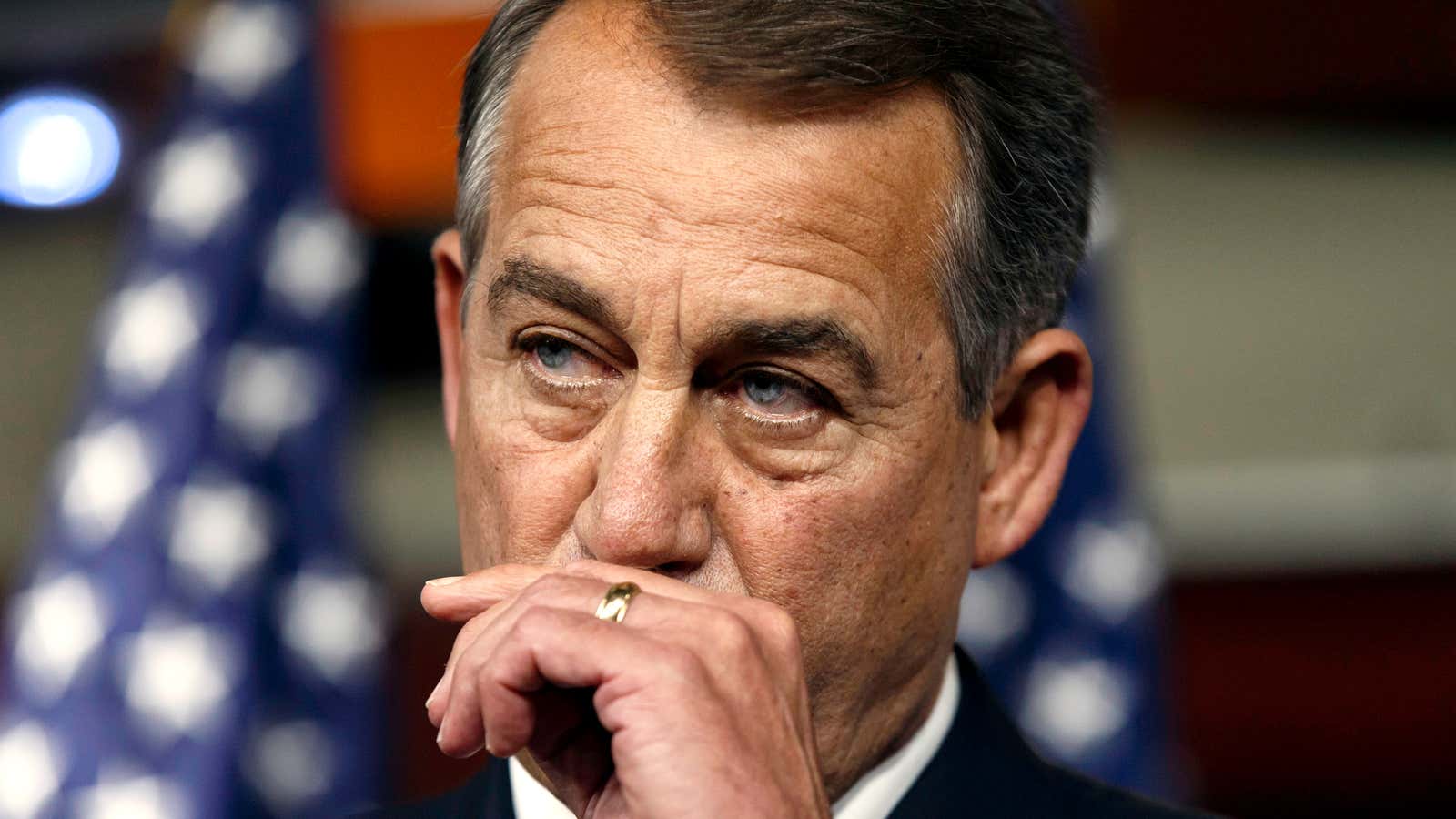After surviving at least two attempts to oust him, the top Republican in Congress has surprised nearly everyone when his aides announced he will retire in October, the consequences of failing to unite his caucus on how to best battle US president Barack Obama’s policy agenda.
As speaker of the House, John Boehner has held the third-highest office in US government since 2011, and has led his party in Congress since 2007. But the Ohio representative’s tenure has been defined less by accomplishment than by a running battle with the agenda set by Obama and his democratic allies in the Senate, and he is the first Speaker to resign in the middle of a legislative session in 26 years.
Boehner had proven himself a dealmaker in the past, shepherding the No Child Left Behind education reforms through Congress with liberal icon senator Ted Kennedy during president George W. Bush’s administration. But the political field where he has found himself in power since has been very different, disturbed by fractures between the traditional interest groups that back the GOP.
Boehner, who rose to power as a right-wing revolutionary during Newt Gingrich’s time as Republican leader in the 1990s, found himself facing a simmering conservative revolution that not only prevented him from striking deals, but also from using his leverage to enact conservative policy.
Now, in the midst of another battle over using the leverage of a government shutdown to force through conservative policy that otherwise would fail in the Senate and meet a presidential veto—a plan to strip funding from Planned Parenthood, the women’s health organization. But Boehner is extricating himself from a party battle between the establishment conservatives who comprise his base and the Tea Party-inspired radicals who made him speaker and increasingly dominate his caucus.
His decision to resign at the end of October seems to indicate that there will be at least a short-term extension of government spending to avoid a shutdown that otherwise would come in September. It also suggests that the next leader of the House of Representatives will be even further to the right than Boehner, and less likely to cooperate with the White House to enact already unlikely late-term compromises on tax reform or trade deals.
If Donald Trump’s domination of the Republican primary field isn’t sign enough that the coalition of evangelical Christians, business interests, and libertarians that make up American conservative politics is increasingly fractured and looking for new leadership, Boehner’s inability to bring its representatives under one tent suggests that the reckoning has only just begun.
